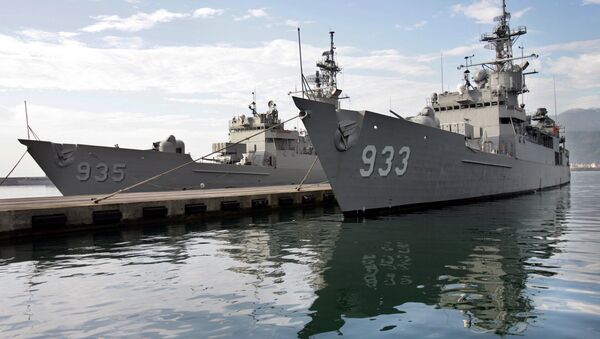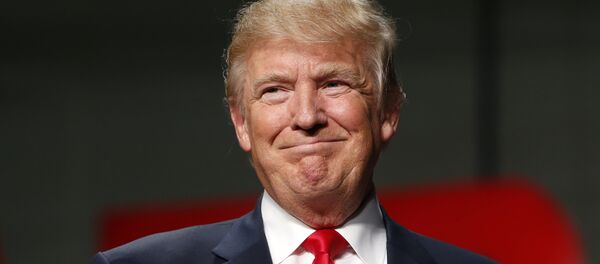Beijing strongly opposes US-Taiwanese military cooperation, China's Foreign Ministry spokesperson Hua Chunying signaled at a press briefing on December 26, commenting on the adoption of the US National Defense Authorization Act for Fiscal Year 2017.
"We are firmly against the Taiwan-related contents in the US act…. We are strongly discontent with the US for signing this act," Hua emphasized.
"The Secretary of Defense should carry out a program of exchanges of senior military officers and senior officials between the United States and Taiwan, designed to improve military to military relations between the United States and Taiwan," the legislation says.
It further specifies that the term "senior military officer" means a general or flag officer of the Armed Forces on active duty, while the term "senior official" is used in the document to describe "a civilian official of the Department of Defense at the level of Assistant Secretary of Defense or above."
Hua stressed that the Taiwan question "falls entirely within China's domestic affairs."
"Although the Taiwan-related content in the US Act has no binding legal force, it still severely violates the three joint communiqués and interferes in China's domestic affairs. China will by no means accept this," she highlighted.
"We urge the US side to honor its commitment on the Taiwan question, put an end to military exchanges with and arms sales to Taiwan and avoid undermining China-US relations or cross-Straits peace and stability," the Chinese Foreign Ministry spokeswoman underscored.
According to Sputnik Chinese, Hua's remarks were primarily addressed not to the outgoing Obama administration but to that of US President-elect Donald Trump. The Chinese leadership has undoubtedly taken Trump's "unpredictability" into account and is now signaling that Beijing won't accept shattering the pillars of Sino-American relations.
In this respect, the US-Chinese consensus on Taiwan plays a pivotal role in the eyes of Beijing.
Beijing has adopted the "watch-and-wait" approach toward Washington: it is still unclear what lies at the root of the US-Taiwanese "exchange program" and Trump's controversial remarks regarding the "One China" policy.
"It would be unrealistic for Taiwan to take it as extra protection from Washington and think it will become safer," The Global Times' editorial said, commenting on the legislation. "The military exchanges between Washington and Taiwan bear more political symbolism than anything else."
For his part, Zhang Tengjun, an assistant research fellow at the China Institute of International Studies, noted in his op-ed for The Global Times that "it is for sure that the Trump government will recalibrate its Taiwan policy and the Taiwan question will be brought up more often between China and the US."
However, the Chinese academic predicted that "by dealing with the Taiwan question like doing business, Trump might have [invited] repercussions that he has never anticipated."
"Trump seems unaware that China regards the one-China policy as a foundation for all its diplomatic ties with other countries, an essential term that shall not be traded on… Unlike other issues, any negotiation over the Taiwan question will not be accepted," Zhang emphasized.





